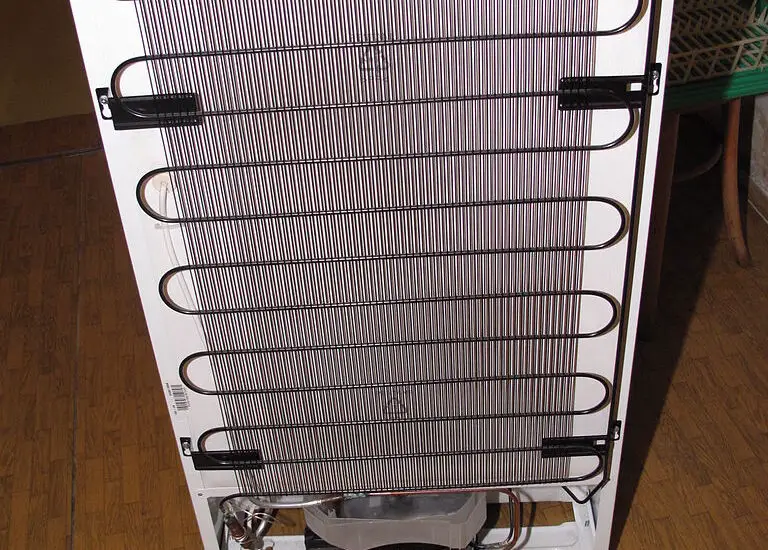Think over condensing refrigeration. You’re probably imagining something related to cooling systems, right? Well, you’re not far off. We’ll get you up to speed on what it means and why it matters.

Table of Contents
Brief Overview of Over Condensing Refrigeration
So, what’s this beast called over-condensing? When we talk about over-condensing in the context of refrigeration, it refers to a situation where the refrigerant is condensed at a temperature much lower than needed. It’s like driving your car in first gear when you could be cruising in fifth – it works, but it’s far from optimal.
Effects of Over-Condensing
The effects of over-condensing on a refrigeration system’s operation aren’t something you’d want to take lightly. Imagine if your car’s engine was running at max speed all the time – not great, right? Same deal here. Over condensing refrigeration can lead to increased energy consumption and potential damage to system components.
Technical Aspects of Over Condensing Refrigeration
Peeling back the layers, let’s delve into the nitty-gritty mechanics of over condensing refrigeration. From understanding the physics behind this occurrence to the factors that can trigger it, there’s plenty of terrain to cover.
The Physics Behind Over-Condensing
Get ready for a physics flashback. The dynamic duo of pressure and temperature play the leading roles in this drama, and understanding their dance is key to unraveling the concept of over-condensing. But remember, there’s more to this story.
Pressure and Temperature Relationships
The core principle involves the relationship between pressure and temperature. When the pressure goes up, the temperature does too, and vice versa. Now, think about what happens when your refrigerant condenses at a higher pressure than needed – yep, it gets colder than necessary. That’s over-condensing for you, folks!
Phase Transition in Refrigeration
Time to go a bit deeper. Remember how water turns into steam when it gets hot? That’s a phase transition. Now imagine that, but in a refrigeration system. Over-condensing occurs when the refrigerant turns from gas to liquid, but it cools down way too much in the process like an overeager actor jumping into character too quickly. Makes sense?
Causes of Over-Condensing
Now, onto the culprits behind over-condensing. There’s no single villain here, but rather a combination of conditions that can lead to this problem. Identifying these causes is akin to solving a thrilling whodunit!
High Condenser Water Temperature
One potential villain in the over-condensing saga is high condenser water temperature. Think about how you feel when you step into a steamy shower. Now imagine that your refrigerant enters a hot condenser – it’s going to lose heat faster than you’d expect, leading to over-condensing.
Excessive Refrigerant Charge
Another culprit? Excessive refrigerant charge. Imagine trying to fill a small balloon with too much air – it’s bound to cause issues. Similarly, stuffing too much refrigerant into the condenser leads to excessive pressure, and voila – over-condensing.
Check out these other related articles…
Evaporative Condenser: A Detailed Guide
Evaporative Condenser vs Cooling Tower: Comprehensive Guide
Air Cooled Condenser Refrigeration: Your Ultimate 411 Guide
Water Cooled Condenser Refrigeration: Your Comprehensive 411
Water Cooled Condenser vs Air Cooled Condenser: Easy Guide
The Impact of Over-Condensing on Refrigeration Systems
Performance Efficiency
Over-condensing is like that annoying party guest who overstays their welcome – it affects the performance and efficiency of your refrigeration system. It’s a bit like running on a treadmill wearing a heavy backpack – you’re using up way more energy than you need to for the task at hand.
Lifespan of the Refrigeration System
And what about the system’s lifespan? Just like that backpack could wear you down over time, over-condensing can reduce the longevity of your refrigeration system. Imagine having to replace your car’s engine because you’ve been revving it too hard. Yeah, it’s kind of like that.
Identifying and Preventing Over-Condensing
Signs of Over-Condensing
Wondering how you’d know if your system is experiencing over-condensing? It’s a bit like spotting a cold: you need to know the symptoms. Look out for signs such as increased energy usage and abnormally high pressure in the condenser.
Preventive Measures
Now that we’ve pinned the causes, it’s time for the big guns – preventive measures. Consider this your game plan for keeping over-condensing at bay. As they say, prevention is better than cure!
Regular System Monitoring
So, how do we nip this in the bud? Just like regular check-ups can keep you in good health, regular monitoring of your refrigeration system can prevent over-condensing. Keep an eye on that pressure gauge, folks!
Appropriate Refrigerant Charge
Remember the balloon analogy? Well, maintaining the correct refrigerant charge can prevent over-condensing. It’s like knowing just the right amount of air to pump into the balloon – not too much, not too little.
Condenser Maintenance
And let’s not forget the role of regular condenser maintenance. It’s like taking your car in for routine service – keeping everything clean and running smoothly to prevent issues like over-condensing.